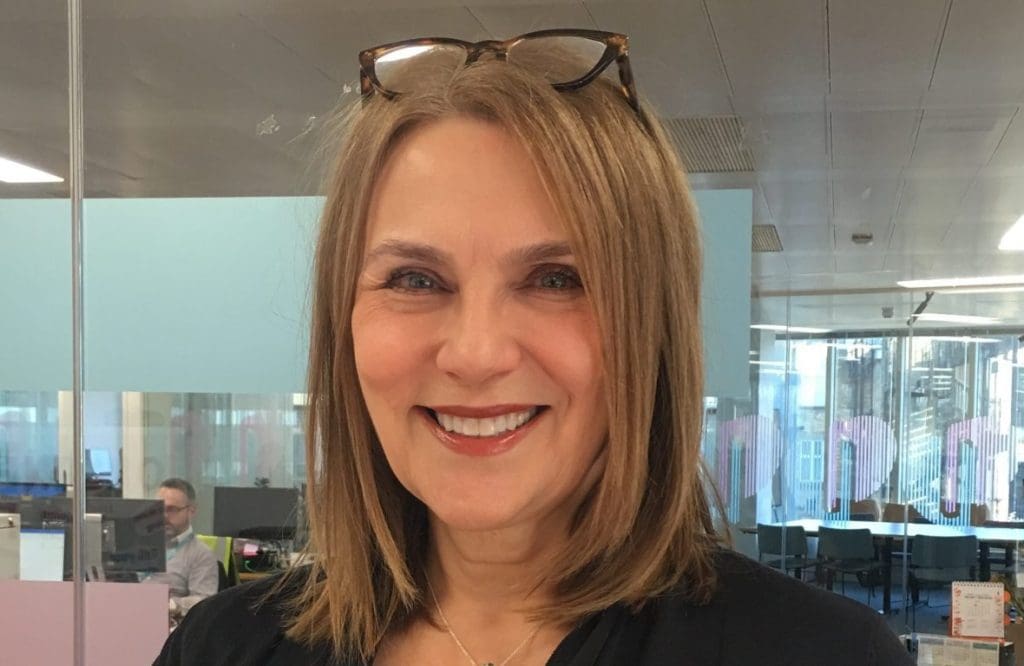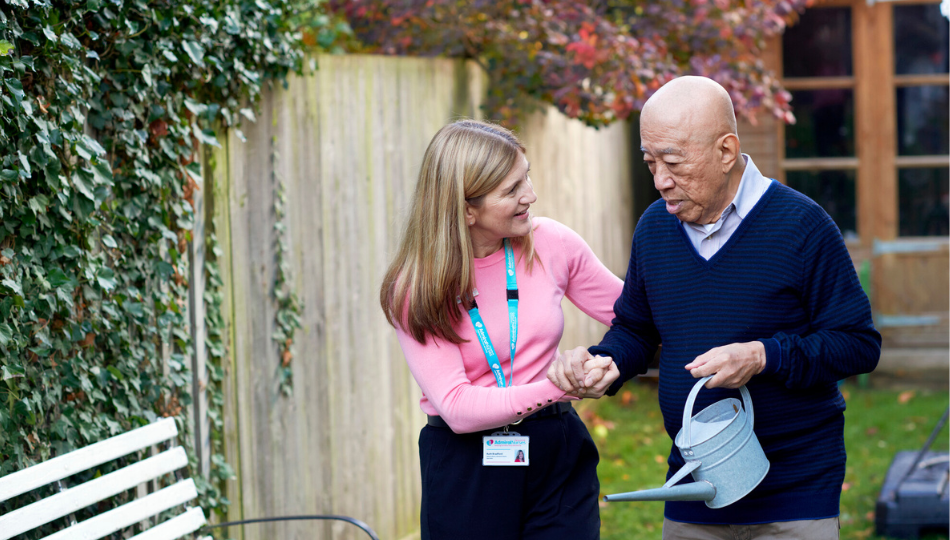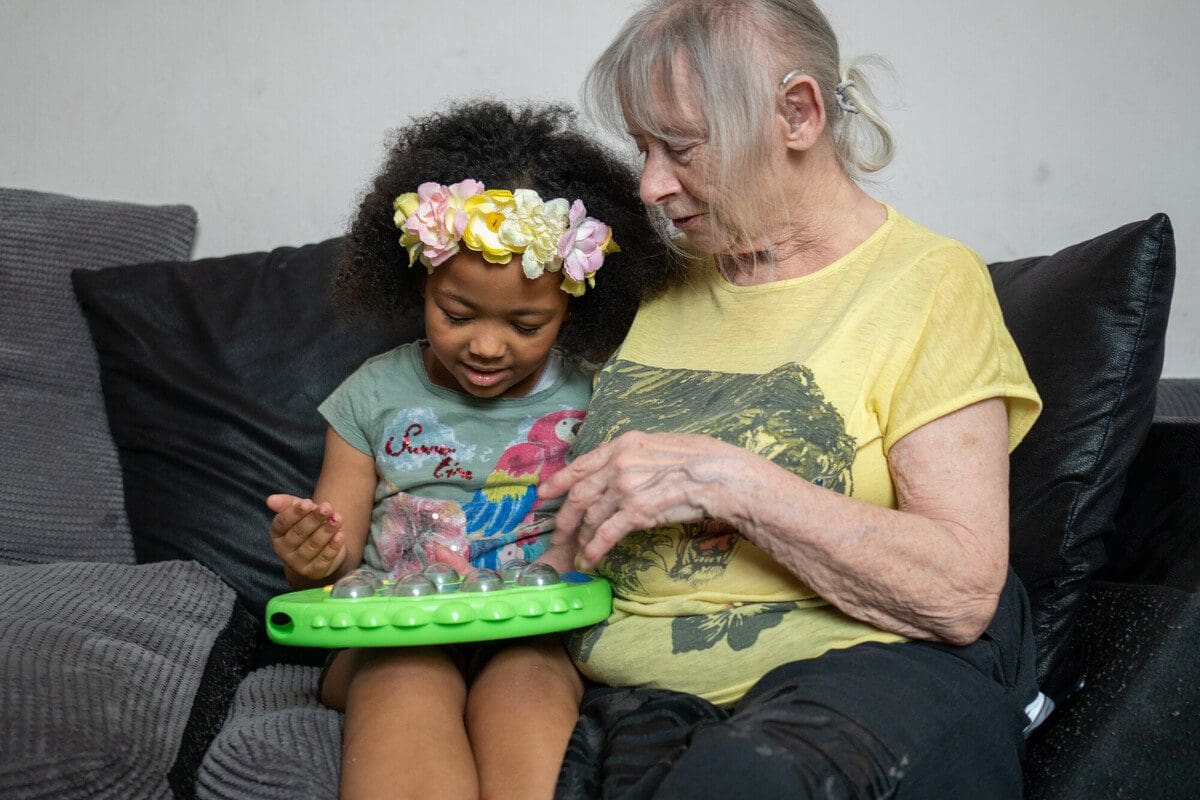Cancer and dementia
These information leaflets focus on cancer and dementia. They include 'Cancer and dementia: A guide for carers' and 'A guide for people with cancer and dementia.
Dementia UK ambassador Lorelei King discusses her experience dealing with her husband’s cancer and dementia as part of World Cancer Day.

In 2009, I never imagined that I would see an upside to my husband’s diagnosis of cancer – but I am grateful that it ultimately led to the diagnosis of his young-onset dementia.
I’d been worried about my husband’s behaviour and memory problems for some time – however, my concerns were put aside by our GP because of his relatively young age.
But during his cancer treatment, medical professionals were finally observing him very closely and it was clear to them that there was something wrong. ‘How long has he had dementia?’, they asked – the first time anyone had said that to me – and, as horrifying as it was to hear, it brought a kind of relief, because we had finally named it.
We postponed formal diagnosis, because first we had to put out the fire that was right in front of us: the cancer. This involved surgery, a catastrophic complication, more surgeries, months of chemotherapy – a process difficult enough to go through, made even more difficult by the dementia.
The challenges, both practical and emotional, during my husband’s cancer treatment were many, but a couple of things stand out in my memory. After surgery, pain relief was provided by a button that my husband was to push – an impossible task due to his dementia; he was unable to follow instructions and simply could not make the connection between that specific action and stopping the pain he was in.
Taking medication was also problematic. He developed a serious infection and was on strong antibiotics, but staff did not realise they had to stay with him to make sure he took them. When a patient has dementia, you can’t simply leave pills and expect them to know what to do. I took to setting my alarm and phoning the ward whenever it was time for his medication to make sure he had taken it.
Thinking that the person I loved most in the world might be in pain with no way to relieve it, or that he might not be getting essential medication, took a toll on me emotionally; I felt so helpless. (I wish I’d had access to the kind of support provided by an Admiral Nurse back then.)
I will forever be grateful to the medical staff who treated my husband’s cancer and saved his life. But I will always regret that there wasn’t more integrated care in place to look after him better when he was in hospital – care that took his dementia into account.
There is no doubt that we are becoming more dementia-aware, both in the community and in hospitals, but there is still much to be done to ensure that the needs of patients with a double diagnosis of dementia and cancer are met. It is not enough only to know that a patient has dementia – there needs to be a clear plan in place as to what that means and what needs to be done differently because of it in terms of a person’s care.
These information leaflets focus on cancer and dementia. They include 'Cancer and dementia: A guide for carers' and 'A guide for people with cancer and dementia.

Help us raise vital funds, improve care and support for families facing dementia and spread the word about our specialist dementia nurses.

Sharing your story with Dementia UK can help to inspire and reassure others who may be going through similar things.